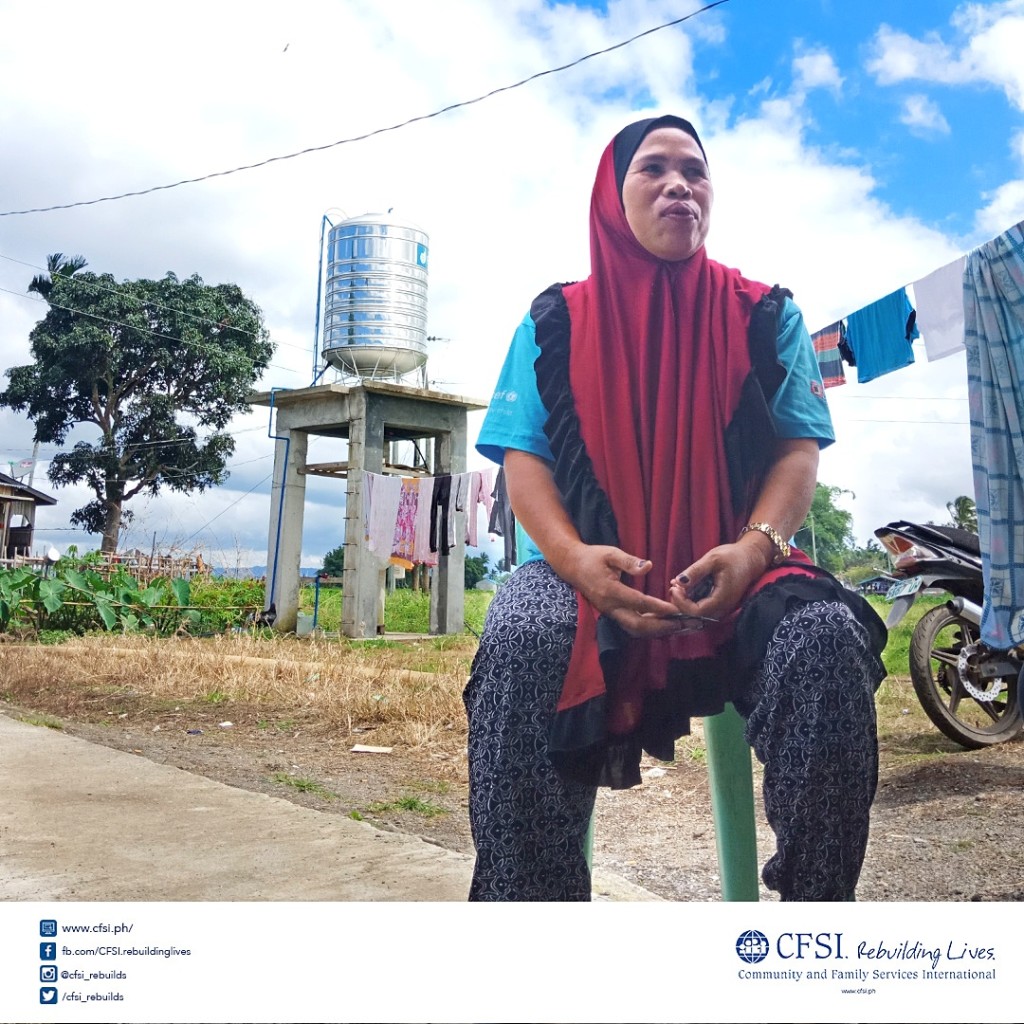Mariam was one of the many who had opened her humble home to the families who fled the terror from the siege in Marawi City. Albeit living short of abundance, Mariam and her family welcomed internally-displaced persons and families coming from Marawi into their home and generously shared the modest resources they had. To Mariam, this was her commitment to society – to extend a helping hand to those in need.
Times, however, have been overly trying. Just two months after the guns have stopped firing in Marawi, Typhoon Vinta, the deadliest tropical cyclone to hit Mindanao since 2012, swept over the regions in southern Philippines, including Mariam’s barangay in Masiu, Lanao del Sur.
The aftermath of the typhoon showed extensive damage to infrastructures and livelihood, but in Brgy. Dalog-Balut, where IDPs still suffer from the effects of the Marawi siege, the demand for a stable water source became the direst challenge. “We need to ride a boat to the center of the lake just to get fresh water for drinking. We do have one hand water pump but it’s not enough to cater everyone in the barangay,” Mariam shares. Women and children need to wait in long queues just to wash themselves in privacy. Travelling to the lake exposes women and children to a number of threats to their protection and safety.
“Our barangay is among the poor barangays in Masiu. The IRA (Internal Revenue Allotment) is not enough to support the construction of a water system,” Mariam adds.
To address the community’s need for a stable water source, the construction of a Level-II Water System was selected as the Quick Impact Project (QIP) for Brgy. Dalog-Balut, under the Mindanao Protection Project (MPP), a project led by CFSI, in partnership with the UNHCR.
After the completion of the water system, Mariam shares that life in Brgy Dalog-Balut has become more comfortable. Their community is able to carry out daily obligations with ease with the new tap installed conveniently in their neighborhood, giving them access to flowing supply of water. No longer do families have to surpass the dangers of the lake. No longer do children have to wait in queue to bathe. No longer do women have to worry about their security when collecting water. With the new water system came a new stream of safety for their community.
The Mindanao Protection Project (MPP) aims to address the immediate protection needs of people affected by armed conflict and facilitates the rapid integration and rehabilitation of IDPs and returnees in Central and Northern Mindanao, and island provinces through the implementation of QIPs and protection monitoring trainings.


